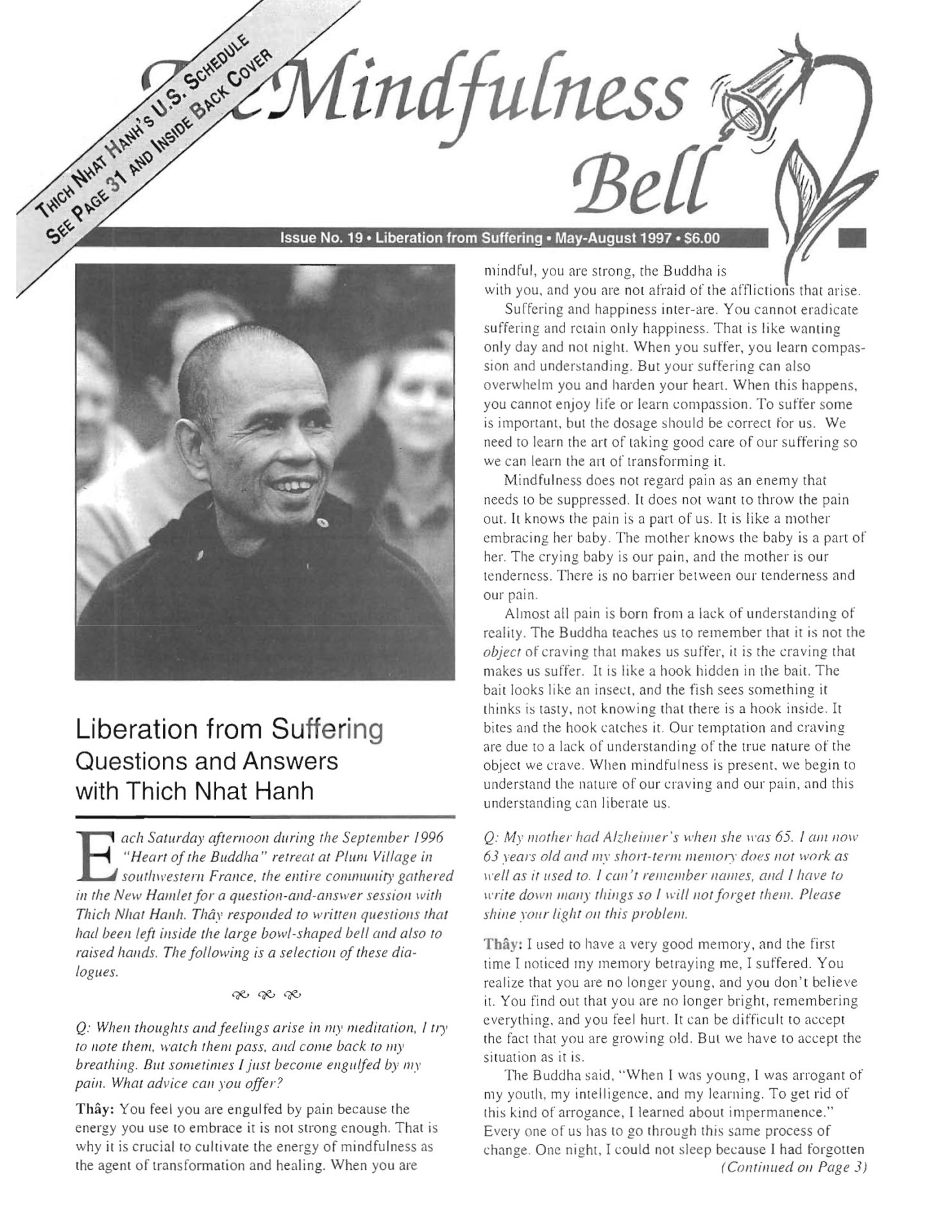By Sister Annabel Laity in May 1997
The Chinese word for ” liberation” is made up of two characters. According to the Dictionary, of Chinese Buddhist Terms by W. E. Soothill and L. Hodous, the characters mean “to unloose, let go, release, untie, disentangle, explain, expound.” The Sanskrit words for liberation are mukti, moksha, vimukti, and vimoksha. Mukti and moksha are translated as ” loosing, release, deliverance, emancipation .”
By Sister Annabel Laity in May 1997
The Chinese word for " liberation" is made up of two characters. According to the Dictionary, of Chinese Buddhist Terms by W. E. Soothill and L. Hodous, the characters mean "to unloose, let go, release, untie, disentangle, explain, expound." The Sanskrit words for liberation are mukti, moksha, vimukti, and vimoksha. Mukti and moksha are translated as " loosing, release, deliverance, emancipation ." The addition of vi- means "complete," or "absolute."
The three concentrations on emptiness, signlessness, and wishlessness are also called the Three Doors of Liberation. Liberation is not something which takes place when we reach the end of the road, but in every moment of our lives as we walk, work, eat, and relate to others. Liberation comes through understanding but understanding can only be when the right causes and conditions are present. When mindfulness, the Sangha, humility, openness , and the right time are available then there is a possibility for understanding. Liberation is always liberation from something. If in a moment of irritation or anger, we are able to come back to ourselves and transform that energy into something positive, that is liberation from irritation . As we continue to use our concentration to look deeply into the emptiness (non-self nature) of ourselves and the other, our liberation from anger will be complete. At every moment of the day, we can liberate ourselves from fixed ideas and perceptions by using our breath to stay in the present moment and to be deeply in touch. At that moment we are practicing emptiness, signlessness, and wishlessness.


